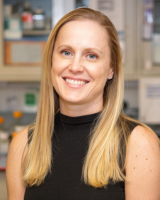UPMC/University of Pittsburgh ABIM Research Pathway
Physician Scientist Development Program (PSDP)
Welcome from the Director
Dear applicant,
Welcome to our website and thank you for your interest in the ABIM Research Pathway and our Physician Scientist Development Program (PSDP). As both a former trainee and now program director for the Physician-Scientist pathway at Pitt/UPMC, I can speak personally about the excellent clinical training and research support available at this institution. We are committed to training the next generation of Physician-Scientists and leaders in academic medicine. Our program has the unique combination of excellent clinical training in one of the largest healthcare systems in the nation, unparalleled research infrastructure and resources in one of the top NIH-funded institutions, and all that in one of the most livable cities in America. If you are passionate about making discoveries that will change the practice of medicine, then UPMC is the right place for you.
Looking forward to hearing from you,
Cary Boyd-Shiwarski, MD, PhD
My Research Interests
The goal of my translational research is to apply scientific discoveries to real-world problems that I have encountered as a physician. My patients inspire my research and provide a foundation for my benchwork. As a nephrologist and cellular physiologist, I have used my expertise to answer questions about kidney health. My laboratory focuses on the role of with-no-lysine kinases (WNKs)¬—integrating WNK function at the molecular level with studies in cells and whole animal.
Molecular Research:
At the molecular level, we have discovered that WNK1 kinases undergo intracellular organization through a process termed liquid-liquid phase separation to form biomolecular condensates that regulate cell volume homeostasis and ion transport. PMID 36318922
Rodent Studies:
At the rodent level, we investigate factors that regulate WNK1 kinases in the kidneys. By combining our knowledge of genetics, pharmacology, and diet we can manipulate WNK1 kinases to determine their regulation and function. In our mouse and human studies, we have identified WNK1-dependent biomolecular condensates that we have termed “WNK bodies” and characterized them as kinase scaffolds that organize and activate the WNK kinase cascade to restore potassium homeostasis during hypokalemia. PMID 29237822
Human Studies:
We are currently integrating our “WNK body” bench research into a translational model relevant to the care of patients. Furthermore, clinically I am interested in kidney genetics and have started the Center for Inherited Kidney Diseases at UPMC to specifically address the growing field of kidney genetics and personalized medicine. As a physician-scientist my training has uniquely prepared me for this discipline in medicine.
What is the ABIM Pathway at UPMC?
- Established by the ABIM in 1997 with the recognition of the importance in training general and subspecialty internists as research scientists.
- It is intended for residents who seek academic careers in basic, translational or clinical research.
- Residents accepted into this pathway will complete two years of clinical training in the Internal Medicine Residency Training Program, forgoing the third year of residency to begin fellowship and then their desired field of research.
- Depending on the fellowship program, one to two years of clinical subspecialty fellowship training in addition to the three years of research will need to be completed.
The ABIM Research Pathway is an integrated program that combines training in research with training in clinical internal medicine and its subspecialties. This pathway is recommended only for physicians who intend to seriously pursue a career in basic science or clinical research. This program is a pipeline for the recruitment, development, and nurturing of future physician-scientists and leaders. This program is unique based on the long-term commitment (between 6-7 years) to the trainees from their first day of residency until their completion of fellowship to their transition into faculty members.
Why choose UPMC?
World Class Institution
- UPMC is one of the largest integrated healthcare systems in the nation and the largest employer in Pennsylvania, with 92,000 staff members, 40 hospitals and more than 800 outpatient sites.
- Large catchment area spanning the entire western Pennsylvania and surrounding states, with diverse patient populations and pathology exposure during clinical training.
- Train from and work next to national clinical leaders in their respective fields.
- Unparalleled opportunities for clinical and translational research given the clinical volumes and patient referrals from across dozens of hospitals within or outside the UPMC network.
- Working in close collaboration with the University of Pittsburgh Schools of the Health Sciences, UPMC shares its clinical, managerial and technological skills worldwide through its innovation and commercialization arm, UPMC Enterprises, and through UPMC International.
- U.S. News consistently ranks UPMC Presbyterian Shadyside among the nation’s best hospitals in many specialties and ranks UPMC Children’s Hospital of Pittsburgh on its Honor Roll of Best Children’s Hospitals.
Funding and Resources
- The UPMC Department of Medicine is ranked in the top 10 nationally among other Departments of Internal Medicine.
- The University of Pittsburgh is 5th in the nation in NIH research funding with total of $490,158,928 toward 993 awards in 2021.
- All 10 subspecialties in the Department of Medicine have actively funded T32 grants for fellowship training with additional T grants also available (T32 = 12, T35 = 2, TL1 = 1).
- Additional research stipend provided by the Department of Medicine during the ABIM required research time during fellowship training.
- The Burroughs-Wellcome Physician Scientist Incubator Program, a unique in design and resources program to facilitate the career growth and research success of Physician-Scientists in training. This program is available to MD only (not MD/PhD) residents and fellows.
Flexibility and Inclusion
- Participation in an annual retreat focused on sharing research accomplishments, meeting faculty mentors, and networking with peers.
- Engagement with the fellowship programs (Email lists, event participation etc.) to ensure early planning and smooth transition to the desired subspecialty training.
- Participation in the PSDP year-long curriculum targeted to address the unique training needs of physician-scientists.
- Regular formal and informal mentoring sessions with the Research Pathway Director and peers.
Mentorship and Success
- The UPMC Department of Medicine has >45 faculty on career development awards (NIH K or equivalent): https://dom.pitt.edu/karat/members/
- Intimate guidance by K and R awarded faculty is facilitated in order to prepare you for a career in academic medicine.
- The K Awardee to R Advancement Training (KARAT) Program: a new Department of Medicine initiative for NIH mentored K-awardees or other equivalent mentored Career Development Awardees (CDA). https://dom.pitt.edu/karat/
Cary Boyd-Shiwarski, MD, PhD
Program Director
ABIM Research Pathway
Georgios Kitsios, MD, PhD
Former Program Director
Mission Statement
Our mission is to identify and train future physician-scientists and nurture their development into successful leaders and faculty investigators. These leaders will actively transform the science of medicine, while providing compassionate, evidence-based care to their patients.
Current Trainees
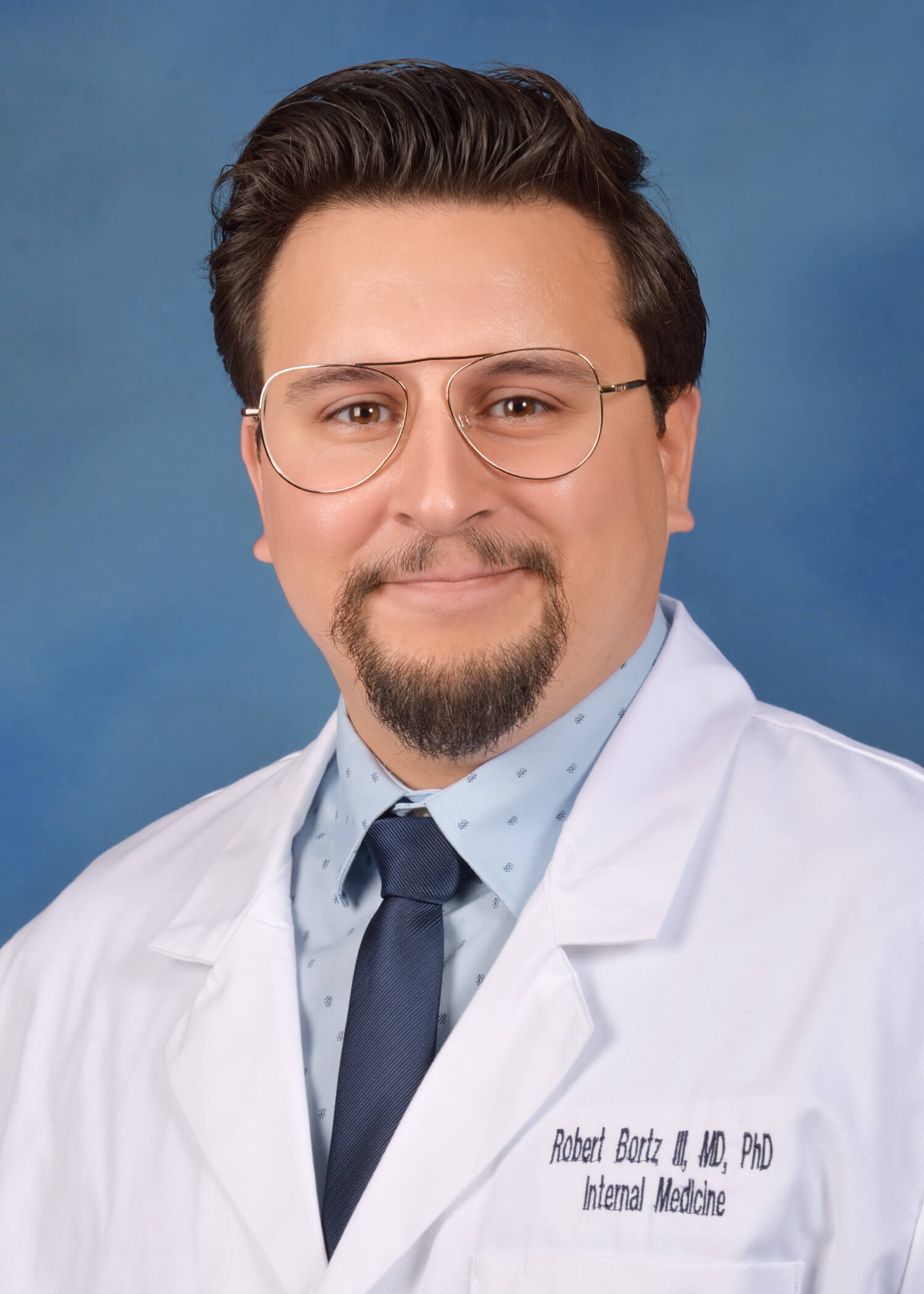
Robert Bortz III, MD
PGY 1
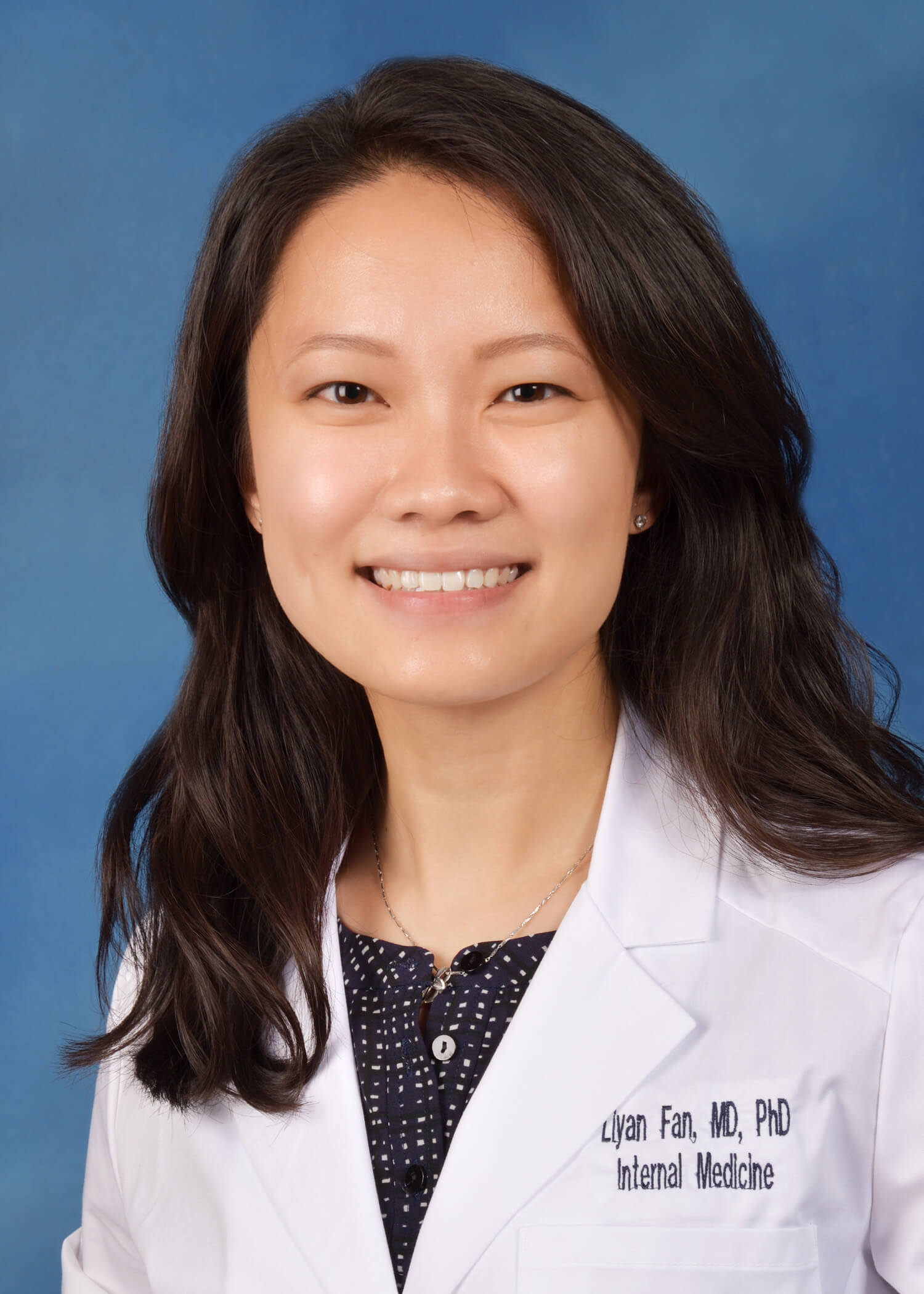
Liyan Fan, MD, PhD
PGY 1
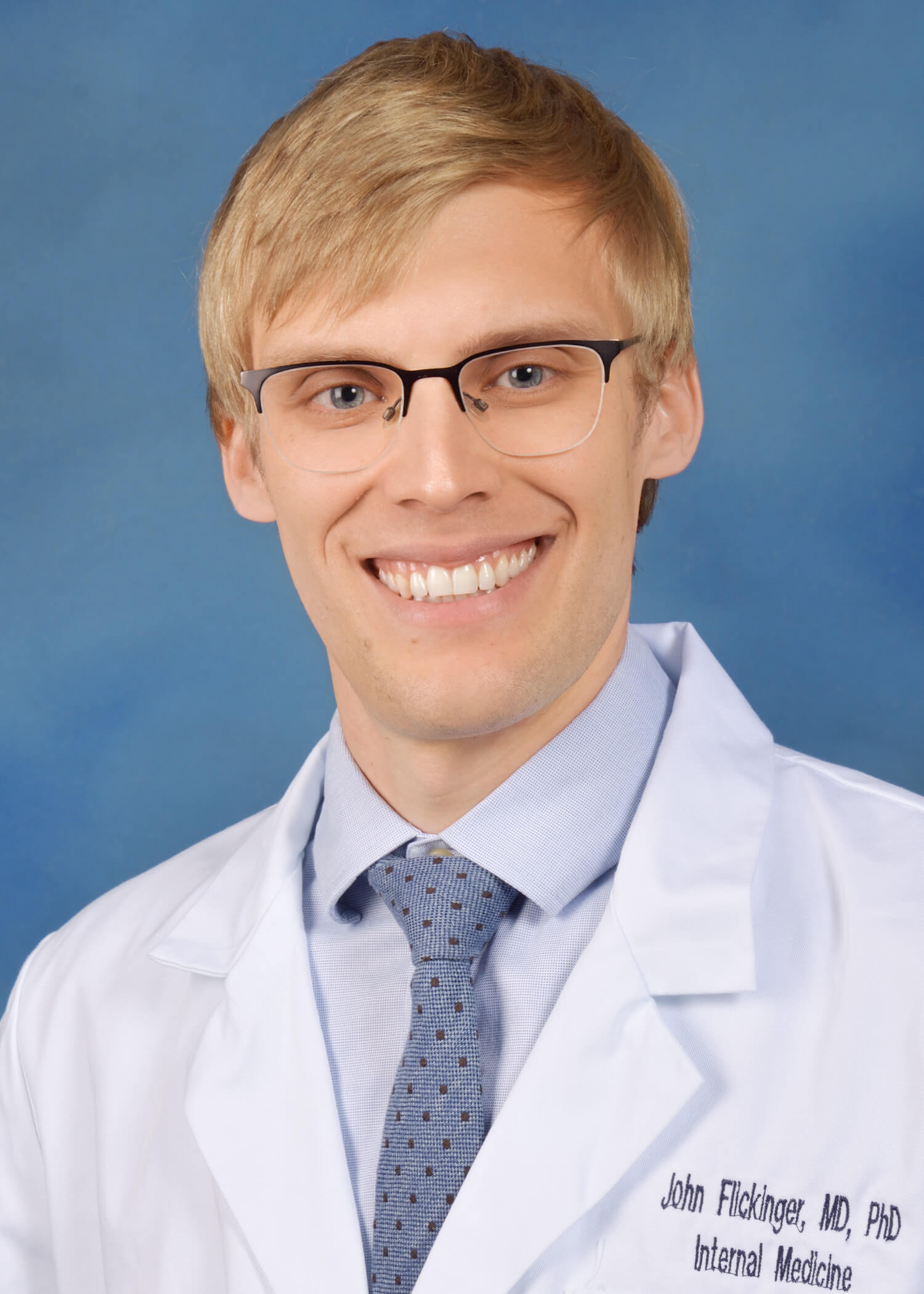
John Flickinger, Jr, MD, PhD
PGY 1
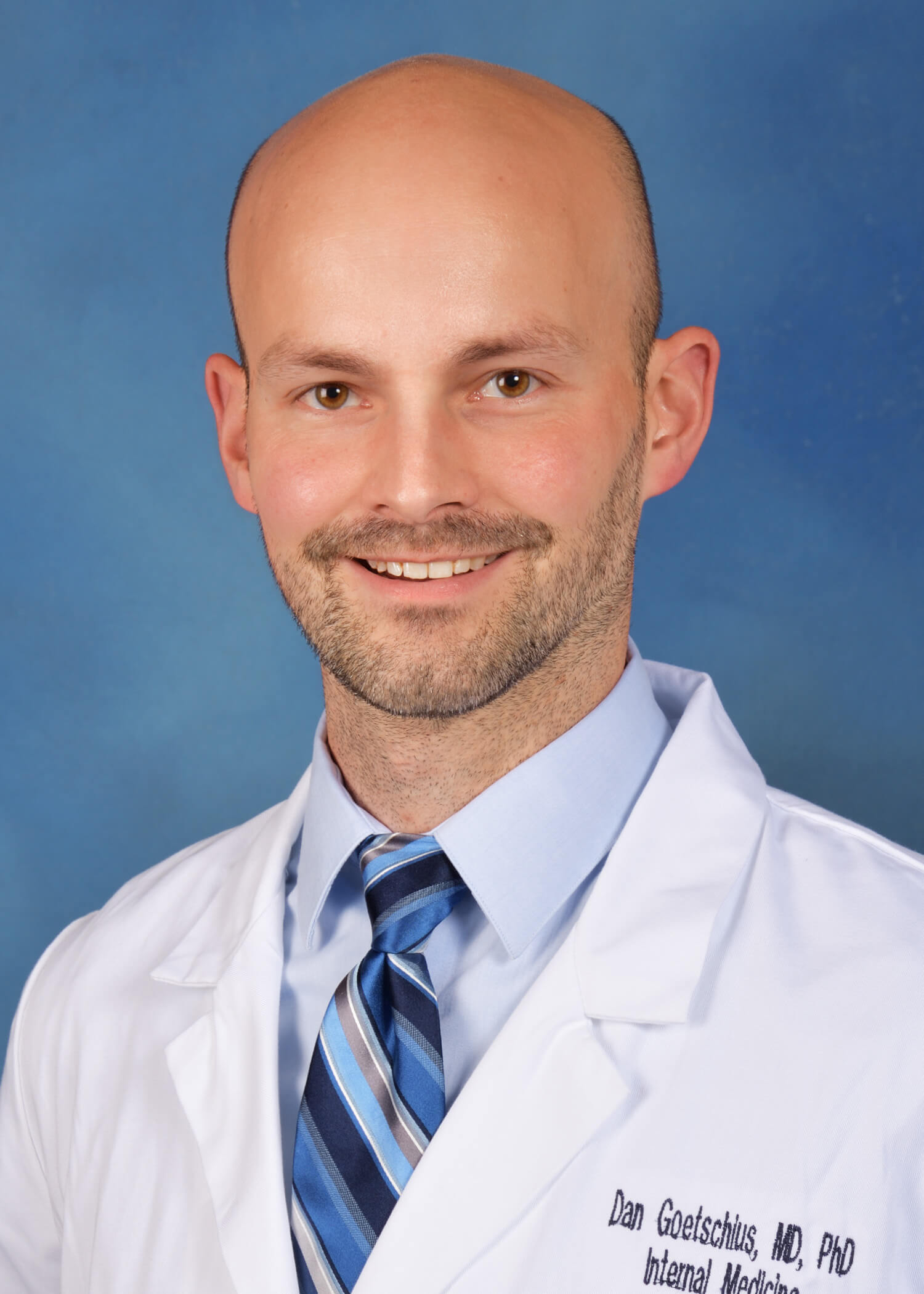
Daniel Goetschius, MD, PhD
PGY 1

Nick Huang, MD, PhD
PGY 2

Yen-Nan Lin, MD, PhD
PGY 2

Randolph Lyde, MD, PhD
PGY 2

Mary Rossillo, MD, PhD
PGY 2
Selected ABIM Profiles
John Evankovich, MD
 Experience:
Experience:
In my experience, the research pathway allows for an individualized approach to both clinical and research training to minimize barriers to starting a career in academic medicine.
Area of Research:
I am a basic and translational scientist focusing on molecular mechanisms contributing to acute lung injury and ARDS. My work focuses on the stability of protein receptors that sense inflammation and Danger-Associated Molecular Pattern sensors (DAMP sensors) in lung epithelial cells and critically ill humans. I hope to better understand how cells process DAMP sensors through the ubiquitin-proteasome system, and how this process affects the magnitude of the host’s pro-inflammatory response to injury.
I trained in the ABIM Research Pathway from 2012-2018. I completed 24 months of internal medicine training from 2012-2014 and started pulmonary/critical care fellowship in 2014. I completed the required clinical training (18 months) from 2014-2015, followed by a post-doctoral research fellowship from 2015-2018. I joined the faculty in the division of Pulmonary, Allergy, and Critical Care Medicine in January 2019.
Current Institution: University of Pittsburgh
Grant Funding: K08: 2019-2024, F32: 2017-2018, T32: 2016-2017
Kevin Quann, MD
Experience:
The UPMC ABIM research pathway is an excellent opportunity for physician scientists. It combines world-class clinical training in internal medicine and medicine subspecialties with top-tier basic- and translational-research in an environment with plenty of institutional and faculty support.
Area of Research: Oncology, but still in clinical training.
Current Institution: University of Pittsburgh
Current Grant Funding: Still in clinical training.
Jeremy Tilstra, MD
 Experience:
Experience:
The research pathway gave me the opportunity to accelerate my career trajectory. The offered support in grant writing and mentorship that I believe resulted in me obtaining my K award and faculty position
Area of Research:
My research focus is to understanding basic signaling mechanisms leading to lupus nephritis. The need for further basic understanding of lupus nephritis is exemplified by the fact that only one new medication has been approved for lupus in the last 50 years and is not indicated for lupus nephritis. Therefore, my work focuses on two distinct pathways to better define this complex disease state. The first is to evaluate the MyD88 signaling pathways in murine lupus. I am assessing several upstream receptors using a reductionist approach and genetic manipulation to determine the roles of TL9, TLR7, and IL-1 signaling on lupus pathogenesis and lupus nephritis. In a secondary project, we are evaluating the interaction between the renal parenchyma and cellular infiltrates to better understand tissue specific effects of autoimmunity in the setting of lupus nephritis.
Current Institution: University of Pittsburgh
Current Grant Funding: K08, LRA novel research grant, PACER award

